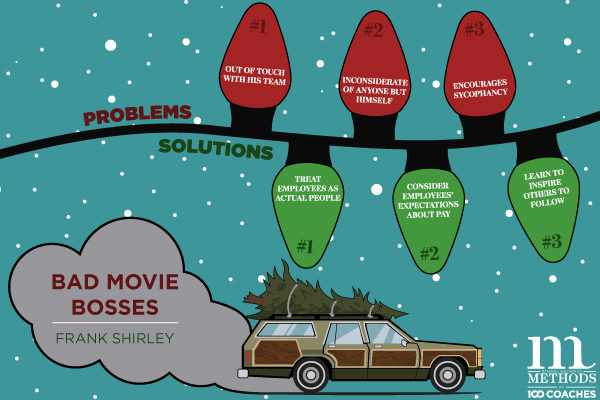What do you think of when you hear the word “coach”? If you’re at all a fan of sports, you might think of your favorite red-faced, be-headsetted, parka-wearing screamer waving a stack of papers around madly in the air like an SOS after what they obviously saw as being a questionable call from the referee. If you’re involved with the business realm, you might’ve thought of professional development coaches for executives and employees alike; that is what we’re here to talk about today.
While the rise of coaching has been steadily increasing in corporate culture since the 80s, the democratization of technology has opened exciting avenues for an entire new generation of professional coaches to step into the limelight. With an abundance of resources out there, it’s easy to become overwhelmed with what information you need to become a successful coach and stay on the cutting edge of your business.
As a coach, you also have to stay relevant in your field, which is why specialization is important. It’s also important to have as wide of a knowledge base as possible; this means that you need to be seeking to learn all the time, and stay up to date on current coaching trends, so that you don’t fall behind or risk becoming irrelevant. One way you can do this is with online learning programs like Methods for Leaders, where you can take courses from the world’s top thought leaders, hand-picked from Marshall Goldsmith’s 100 Coaches program and learn about a variety of subjects. Our system also features fully interactive videos that use custom, user-subjective response technology to enhance learning and knowledge retention.

Go beyond “consulting”
According to an article from Forbes, coaching is on its way to overtake consulting as the primary method for improving business outcomes through training and leadership education. The difference between the two, according to the article is, “Consulting augments gaps in knowledge, but coaching emphasizes the transfer of wisdom.” Put another way, consulting provides businesses with solutions, and coaching empowers the people within a business to develop their own skills to solve problems. As a younger generation enters the workforce, it’s imperative that these emerging leaders and managers improve upon their own skills and capacity so that they don’t come to rely on this “augmentation” of knowledge from outside sources that consulting can provide

Use technology tools
The COVID-19 pandemic and subsequent increase in remote work created new online and virtual spaces for coaches to deliver their content, while the lull in normal business operations also provided time and resources for employees and executives to train. When business slowed to a crawl, the smartest leaders focused on learning and equipping themselves to move forward.
The digitization of coaching can make the experience more impersonal, but also more efficient. As a coach, you’re no longer beholden to your in-person availability as you can hold webinars and other online events that require no overhead cost save for a laptop and an internet connection. Through this, you can also reach a wider, more global audience without ever having to leave your home. Virtual coaching can be another way to offer more value to your clients. Consider getting them a subscription to a service such as Methods of 100 Coaches in the coaching package you offer them. This allows them to access coaching guidance, provided by you, even when you aren’t personally available. Forward them articles and webinars you think they would find helpful. Check out our webinar series here for a start.
It is important to note that coaching in a digital space does not have to be impersonal. It takes work to bridge the gap, but necessity breeds innovation, and there are plenty of ways to make meaningful connections remotely. For example, our interactive training platform includes a workbook with each course, allowing for clients or teams to make note of and discuss personal applications of the material. With a broad range of business topics, you can take or assign courses based on your client’s specific needs. Seeking training specific to your client’s area of focus not only gives you better tools to help them grow, it shows that you care and take a personal interest in their success.

Bolster your credentials
Currently, the coaching industry is quite unregulated, meaning anyone can call themselves a coach. So how do you know if your coach is really all they’re cracked up to be? As a coach, you also need measurable results. You can’t simply tell people you’ll improve their business—you have to prove you’ve done it successfully in the past with another company. You must show that your services are up to snuff with industry standards.
One way you can tell is if they have multiple accreditations with various organizations, including certificates from learning programs just like Methods. Our system also gives you metrics for how much training you have completed, allowing you to cite to potential and current clients alike the total hours of courses and certifications you’ve completed. Methods instructors are all certified through Marshall Goldsmith’s 100 Coaches program, so you know they are top-tier and have brought results to prominent CEOs and major companies, such as Starbucks, Ford, and Nike. The more credible the training you receive is, the more credible the services you provide will be.
All of these things lead to the conclusion that coaching isn’t going anywhere any time soon, so if this is your game, now is the time to strengthen your skills and educate yourself for the new digitally-enhanced world of coaching.





